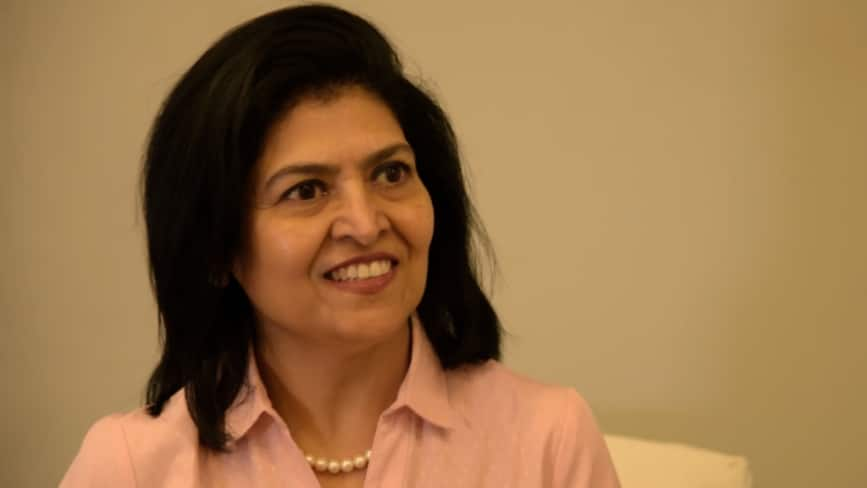The treatment of cancer is being revolutionized by personalized diet. Today the focus is on customized diets, lifestyle interventions, and compliance coaching in enhancing treatment outcomes and redefining patient-centric cancer recovery.

Dr. Shikha Sharma, Founder at Nutriwel Health India Ltd.
Shahid Akhter, Consulting Editor, FEHealthcare, in conversation with Dr. Shikha Sharma, Founder at Nutriwel Health India Ltd., discusses the growing significance of personalized nutrition in cancer care, including how it promotes healing and improves treatment results.
Role of nutrition in cancer care
When we talk about the role of nutrition in cancer care, the first thing to understand is that the body is not static. It's a dynamic machine. It implies that the skin cells are regenerating and the intestinal lining is renewing. Every three months, new blood cells are created. It means you're constantly changing. Your body's evolving and regenerating. Your body needs the right raw materials for this regeneration, including vitamins, minerals, enzymes, and everything else. Now imagine if one is undergoing cancer treatment and he has undergone chemotherapy, where certain cells, which are malignant, have been destroyed. If one is not getting enough nutrients, his regenerative potential won't be engaged.
With the treatment, the malignant cells are being eliminated. The tumors are being eliminated. But the regenerative capacity would require that, as a patient, one have all those foods, ingredients, and raw materials that are scientifically going to be important and help him heal his body and build the regenerative process. For any kind of care, it begins with the treatment protocol, and the other one is food and nutrition, which is personalized, customized, and which has all those elements that the body needs for regeneration.
Role of nutrition in cancer care: Emerging trends
In terms of the emerging trends in cancer care nutrition, the two most exciting trends are nutrition and genetics. There was a time when nutrition used to be very generic. It was very generalized. Everybody has milk. Everybody has code. Everybody has this or that kind of protein. Today, because nutrition and genetics have become personalized, it implies that based on your genetic typing, you have a predisposition to certain foods that you absorb better and certain foods that you will not be able to handle better.
So this emerging science of nutrigenetics is very exciting, especially for specialized care and advanced nutrition care. The second thing is the role of epigenetics, which means your nutrition and your lifestyle, which also includes your stress management, your thinking, and the way you live life. For example, are you a smoker? Are you sedentary? Do you get enough hours of sleep?
All these are also impacting your genetics, which means that these factors, along with nutrition, can have a huge role to play in disease outcome. And therefore, when we look at a patient not as a diseased organ but as a human being and then plan the therapies, which include advancements in epigenetics, the results are far better.
Role of nutrition in cancer care: Challenges
The biggest challenge, which I initially faced as a practicing doctor, is that we give the best kind of prescription to the patient, but the patient is not adhering to that wholeheartedly. Because of personal reasons, it could be depression. It could be anxiety. It could be habits that the person is not able to get into. I started thinking that there has to be a monitoring protocol, a follow-up protocol where the compliance coaches and the health coaches are helping the patient to actually stick to the protocol. As doctors, as nutritionists, and as a care team, we design the entire protocol, and then the care team compliance coaches will help the patient to adhere. This is a most critical aspect that used to be missing earlier. But now it has become part. It has become part and parcel of health care.
Role of nutrition in cancer care: The future
The future of cancer care, and especially when we talk about nutrition, is specialized nutrition. And this, I'm sure, is going to come sooner than later because specialized nutrition would actually, with the help of the biomarkers, tell the patient, You need this much vitamin, you need this much mineral, you need this much enzyme, and these are the ingredients that your body is processing faster or slower. This specialized nutrition, which is completely personalized, is the future of nutrition and cancer care.
By continuing you agree to our Privacy Policy & Terms & Conditions
